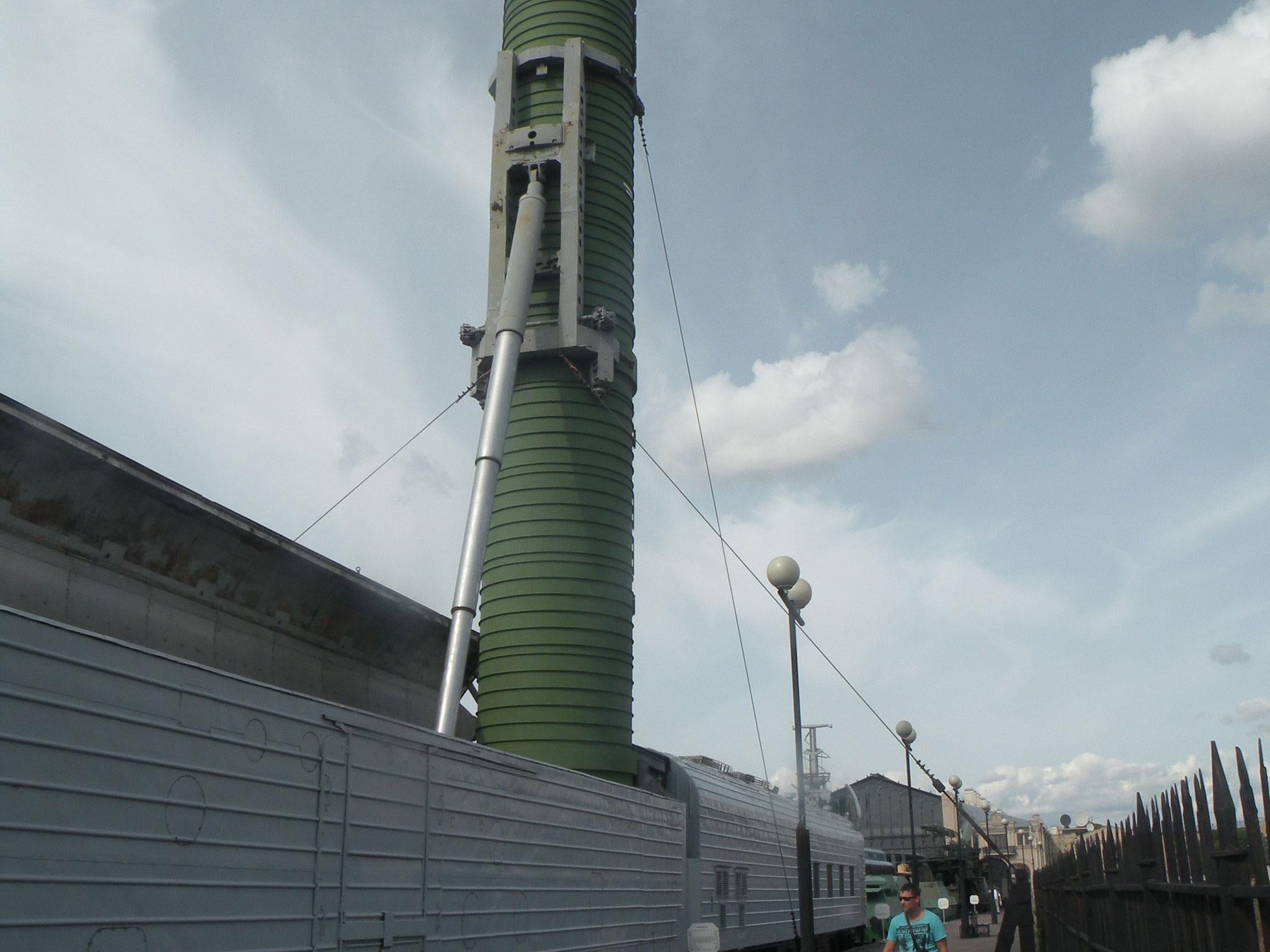Russia successfully tests missiles that fire from 'nuclear trains'
Latest missile advancement comes as Kremlin deploys nuclear-capable missiles to Polish boarder

Your support helps us to tell the story
From reproductive rights to climate change to Big Tech, The Independent is on the ground when the story is developing. Whether it's investigating the financials of Elon Musk's pro-Trump PAC or producing our latest documentary, 'The A Word', which shines a light on the American women fighting for reproductive rights, we know how important it is to parse out the facts from the messaging.
At such a critical moment in US history, we need reporters on the ground. Your donation allows us to keep sending journalists to speak to both sides of the story.
The Independent is trusted by Americans across the entire political spectrum. And unlike many other quality news outlets, we choose not to lock Americans out of our reporting and analysis with paywalls. We believe quality journalism should be available to everyone, paid for by those who can afford it.
Your support makes all the difference.Russia has successfully tested intercontinental ballistic missiles intended for its "nuclear trains" program.
Tests on missiles for the Barguzin "railway-based combat rocket system" were carried out at the Plesetsk cosmodrome two weeks ago, the state-owned Interfax news agency reports.
"They were fully successful," a military source told the agency, "paving the way for further flight tests."
The mobile weapons platform, made up of several train carriages designed to conceal the launchers of six Yars or Yars-M thermonuclear ICBMs and their command units, are expected to enter service between 2018 and 2020.
Lieutenant-General Sergai Karakayev, who commands Russia's strategic missile forces, said the Barguzin would be superior to the Soviet-era Molodets nuclear trains in accuracy and range.
He expects them to be in service until 2040.
The Soviet Union had 12 Molodets trains in total, each of which were equipped with three nuclear missiles. Known by the Nato designation Scalpel, they were disposed of between 2003 and 2005.
Russia's latest advancement in its nuclear weapons technology comes as a senior MP announced the deployment of nuclear-capable missiles to the Kaliningrad exclave.
Moscow will deploy S-400 surface-to-air missiles and nuclear-capable Iskander missiles to the exclave, which borders Poland and Lithuania.
The Kremlin has brushed off Western criticism of the deployment of state-of-the art missiles in the Baltic Sea region, describing it as an equivalent response to Nato's military build-up near its borders.
On Monday, US State Department spokesman John Kirby warned the deployment of Iskander and S-400 missiles to Kaliningrad is "destabilising to European security" and urged Moscow to "refrain from words or deeds that are inconsistent with the goal of promoting security and stability in the Euro-Atlantic region".
President Vladimir Putin's spokesman, Dmitry Peskov, told reporters that the Russian military needs to respond to what he described as Nato's aggressive moves.
"Russia is doing what is necessary to protect itself amid Nato's expansion toward its borders," Mr Peskov said.
"The alliance is a truly aggressive bloc, so Russia does what it has to do. It has every sovereign right to take necessary measures throughout the territory of the Russian Federation."
Moscow has also deployed new anti-ship missiles on Pacific islands controlled by Russia but also claimed by Japan.
Bal and Bastion missile systems have been stationed on the islands, called the southern Kurils by Russia and the Northern Territories by Japan, the Boyevaya Vakhta (Combat Duty) newspaper of Russia's Pacific Fleet reports.
The disagreement over the islands, seized by the Soviet Union at the end of World War II, has kept the two countries from signing a peace treaty formally ending their wartime hostilities.
Additional reporting by agencies
Subscribe to Independent Premium to bookmark this article
Want to bookmark your favourite articles and stories to read or reference later? Start your Independent Premium subscription today.
Join our commenting forum
Join thought-provoking conversations, follow other Independent readers and see their replies
Comments